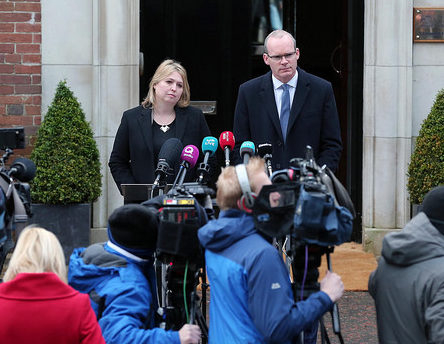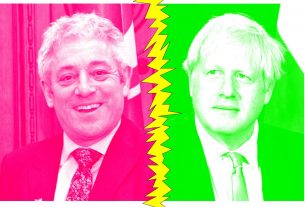Brexit hardliners in the UK are prepared to pay any price to get what they want, Ireland’s deputy prime minister has said.
With the crucial House of Commons vote on Theresa May’s Brexit withdrawal deal due next week, Simon Coveney said the time for ‘wishful thinking’ was over.
He told a conference in Dublin that so-called ‘Brextremists’ in the UK think ‘no price is too high to pay for their version of Brexit.’
British MPs need to dump ‘unrealistic’ Brexit options based on promises made that can never be delivered, he added.
Coveney had previously said that the UK leaving the EU without a deal would cause ‘significant stress’ to the Irish economy.
His government has stepped up its planning for a no-deal Brexit, with plans to buy land at Dublin and Rosslare ports to deal with delays caused by customs checks.
The 130-page Irish document covered 19 sectors and was comprehensive and ‘stark’ Coveney admitted.
He said the Irish fear was that hard Brexiteers would win and that it would be ‘to everyone’s cost, most notably Ireland.”
Theresa May’s draft agreement with the EU was the best one available to protect the peace in Northern Ireland, despite unionist objections, he added.
The backstop aims to avoid the return of a hard border between Northern Ireland and the Republic and would be activated if no long-term trade deal could be agreed.
But the Democratic Unionist Party and Tory Brexiteers believe it loosens the union between Northern Ireland and Great Britain and say they will vote against the deal.
Coveney was speaking at Dublin Castle, where he and German foreign minister Heiko Maas addressed Irish ambassadors on ‘Ireland’s role in a changing world.’
Mr Maas said a hard border on the island of Ireland was ‘unacceptable’ to the EU, for which it was a ‘fundamental concern’ and a matter of principle for the EU.
Irish Taoiseach Leo Varadkar told journalists on a visit to Mali that the EU does not want to ‘trap the UK’ with the draft withdrawal deal.
He said the intention was to move on with talks on the future trade relationship between the EU and UK as soon it was passed by the Commons.
The EU was happy to give more guarantees in writing before the Westminster vote in order to allay fears of its critics in Parliament, he added.
“There is close contact between the UK and EU institutions as to whether a further set of written guarantees, explanations and assurances could make a difference.”
“We don’t want to trap the UK into anything – we want to get on to the talks about the future relationship right away. It’s those kinds of assurances we are happy to give.”




